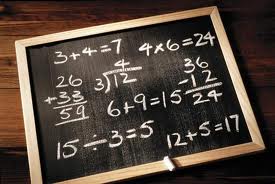Maths games for kids

Unfortunately many kids dislike math. It’s almost become a mental block and this is not helped by parents who happily claim, “Oh, I was no good at maths either”. The funny thing is, most young children enjoy learning to count as they enjoy the rhythm and the precision involved. And it’s really quite easy for […]
Kids learning: The wonder of play dough
Kids learning about the world through the wonder of play dough. I’m not a night owl. In fact, most nights I battle to stay awake past 8pm. But last Wednesday evening I found myself in the kitchen at 11:30pm happily humming to myself and shuffling along in my slippers – making play dough. I would […]
What exactly is tested during Psycho-Educational Assessments?
Educational Assessments Assessments vary greatly depending on the age and socio-cultural background of each child, as well as the reason for the assessment. Generally four types of assessments are done, these include: school readiness assessments, assessments to ascertain whether learning difficulties are present, subject choice assessments and career choice assessments. The first step in all […]
What is the difference between remedial and special education?
Put very simply, remedial education applies to children who have average to above average intellectual abilities, but do not perform according to their potential as a result of difficulties with reading and/or writing and/or arithmetic. Whereas special educational facilities cater for children with below average intellectual abilities. Some schools also advertise that they offer mainstream […]
Edition no1 2011 – Visual Perception
Welcome back and a very, very happy New Year to you all! After a jam-packed 2010 (with its extended holidays due to the World Cup) and an unusually rainy December holiday period, many parents expressed their relief when schools across the country finally opened their doors for the start of the 2011 academic year. I […]
2nd Edition 2011 – Auditory Perception
As February draws to a close, the majority of children have settled into their new classrooms and teachers start to pick up the work pace. This is also generally the time of the year when teachers begin to identify learners with apparent learning difficulties and refer them to various specialists for examination and remediation. Many […]
Mathematics disorder (Dyscalculia)
Children with mathematics disorder have difficulty learning and remembering numerals, cannot remember basic facts about numbers and are slow and inaccurate in their calculations. Typically children with mathematics disorder perform poorly in four groups of skills. These are: * Linguistic skills (i.e. skills related to understanding mathematical terms and converting written problems into mathematical symbols) […]

